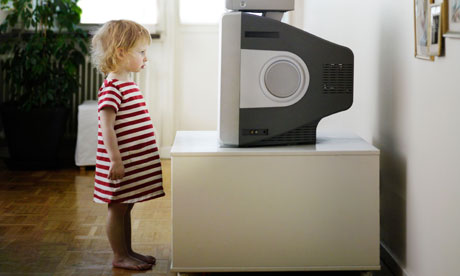Family under the microscope
What happens in your child's first year can be critical
Prenatal life and the responsiveness of care in the first year are looking increasingly critical in establishing the baseline levels of a child's normal electrochemistry and its subsequent reactivity to stress. That might sound scary, especially if your children are already at school, or if you are about to have a baby. But there are some very positive implications, too.
A recent study of 1,100 mothers and babies measured maternal sensitivity to the infant at seven, 15 and 24 months. At each of those ages, the babies were exposed to briefly stressful challenges. At seven months, the infants were given an attractive toy to play with for 30 seconds. The tester then placed the toy just beyond the poor little mite's reach behind a clear, plastic container. This was repeated twice more. Similar challenges were carried out at 15 and 24 months.
Saliva swabs were taken from the child before and after the challenges each time to measure levels of the fight-flight hormone, cortisol. This identified how stressed the child was at the outset and how quickly it recovered from being challenged: its reactivity.
In addition, the amount of physical violence by either parent towards the other was measured for the previous 12 months at each assessment. Other factors that might affect the child, such as depression, were also assessed.
Exposure to parental violence did not affect how reactive the child was to the test at seven or 15 months, but it did at age two. The accumulation of exposure to violence primed the child to become reactive – the more they had been exposed at all three ages, the more their cortisol levels jumped when challenged at 24 months, and the longer it took for them to settle down.
But the most interesting finding was that maternal sensitivity at seven months was a crucial factor in the reaction at two. Children whose mothers were very sensitive in the first year, and who had witnessed high levels of violence, were calm when challenged at two. The good early care meant their cortisol levels were indistinguishable from babies who had had no exposure to parental violence.
Furthermore, high maternal responsiveness at 15 months and aged two did not have the same protective effect. If the seven month care had not been responsive then even if subsequent care was, the toddler was highly reactive if there had been parental violence.
Along with parental conflict, there are other experiences that increase the risk of high reactivity (high or blunted cortisol levels), such as maternal depression. What is so dramatic about this study is that it proves that if the baby felt loved in the first year, it is much less likely to become reactive – early love has a protective effect if things then go wrong. It fits with studies showing that unresponsive early care explains why some people react to subsequent bad experiences by becoming personality disordered or possibly, develop even bigger problems, such as schizophrenia or bipolar disorder.
If you are a parent who feels that your child's first year was not good (probably through no fault of yours – such as if you were depressed), that is not the end of the story. If the child is three to early teenage, you can reset the thermostat (try a Love Bombing weekend – contact me for details). If your child is older, or if you are thinking of your own infancy, an attachment-based therapist will be able to help. Thank God it's not in your or your child's genes – it's the environment, stupid! And there's a lot we can do about that.
Cortisol study: HIbel, LC et al, 2010, Development and Psychopathology, 23, 689-70. Contact Oliver James at selfishcapitalist.com
Is TV right for toddlers?
'Educational' TV is of little value to under-twos, say researchers – tell us what you think about telly made for tots

A new report suggests that TV might have a detrimental effect on linguistic development. Photograph: Alamy
Can TV for children really be educational? Not when it's aimed at the under-twos, according to a report by US paediatricians. It even suggests there's evidence that it can harm linguistic development.
Do you worry about the effect of television on young children? Does your toddler watch TV? Were your parents happy to sit you in front of a screen from a young age? What are the earliest TV programmes you can remember watching, and what do you think now about their educational value – or lack of it?

No comments:
Post a Comment